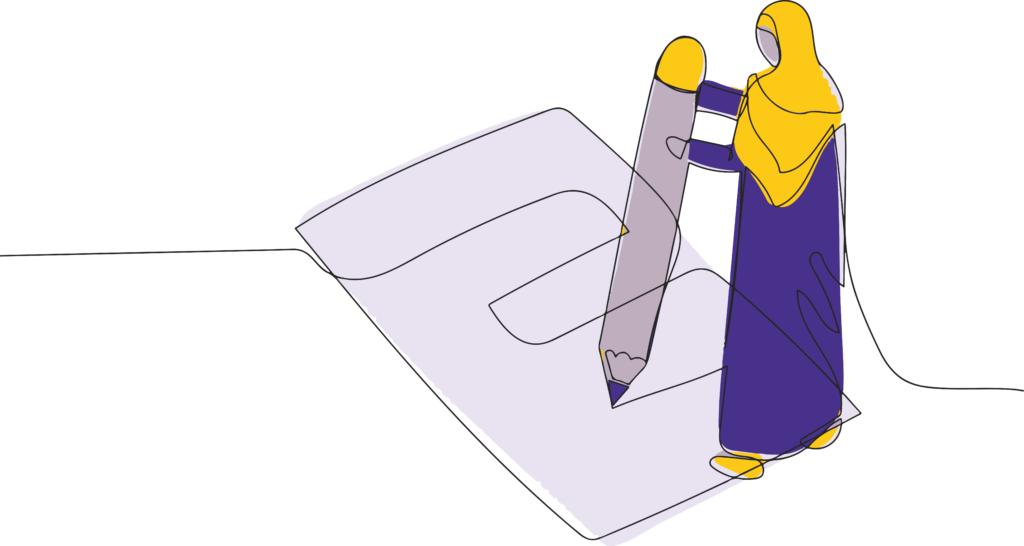
Tackling the perception of ‘politics should be abstained’ is no easy feat. The false perception has led to some Muslims not engaging in politics. The most effective way of correcting this understanding amongst Muslims is to look at the statesmanship and of the Messenger ﷺ.
There is no doubt that one of the greatest gifts of the Messenger ﷺ was his statesmanship. In fact, of the three great gifts the Messenger ﷺ had; each of which was indispensable to his total achievement, is Muhammad’s ﷺ wisdom as a statesman.
The Messenger ﷺ paved the way for sustainable political theories. The Messenger ﷺ set a precedence which ultimately set the tone for generations to follow.
The State of Nature Theory addresses the condition of a human being without political affiliation. It says that the anarchic nature of human beings, in the absence of a ‘sovereign authority’ (a leader), is sure to give rise to conflicts among society. Doubtlessly, the Messenger ﷺ had inaugurated this concept at the beginning of his mission. He vehemently opposed all sort of undertakings without a leader, to the extent that even on a journey (of a group of 3 people or more), a leader should be appointed. The Messenger ﷺ said: “If there are three people on a journey, they should appoint one as a leader from among them” The Messenger ﷺ indicated, a caring leader should be entrusted for every deed in life and especially for affairs related to governance.
With this in mind, when the opportunity arises to select our respective constituent MP, it is imperative to use our democratic right and select an individual who will be caring, empathetic and compassionate to the communities they serve.
The Social Contract Theory proposes that a government should be formed with a strong contract between ruler and people. The Messenger ﷺ adopted this theory by making the rulers to be held responsible for seeking Shūrā (consultation with people). Thus, allowing the civil society to consult the ruler if he ever goes astray. It is to no surprise than, engaging with our politicians is part of our traditions. One of the great subcontinent intellects and scholar, Mawlānā Abul-Hassan Nadwī once said that albeit our Masājid may be full and engaged in the post-twilight prayer, however, until, we do not participate in the traditions of the Messengers (I.e. politics), a day will come where the doors to our Masājid will be shut and will give rise to Islamophobia – this foresight is evident in modern British society, where Islamophobia is now prolific.
The importance of political engagement is not merely to develop our national interests, but also, to to improve our society. It is to no surprise that the statesmanship of the Messenger ﷺ was such that after the migration from Makkah to Madinah, the Messneger ﷺ established a structure where all people, irrespective of their belief, status and culture, were equal. The Messenger ﷺ crafted a written Constitution for the first time in history — in 622 AD, shortly after the migration from Makkah to Madinah. This charter contains 47 clauses that set the foundations of a political order comprising of Muslims, Jews and Pagans, creating an egalitarian community.
The Messenger ﷺ took great care of his people’s faith and looked into their economic well-being with serious considerations. He signed treaties and made alliances with tribes, wrote to surrounding statesmen, was commander in chief and executed military action. One example of this, from the ‘Treaty of Hudaybiyya,’ the Messenger ﷺ once again is the epitome of statesmanship and manifested his foresight in this treaty. Many of the Sahāba were perplexed by a meek treaty in their eyes, a treaty which according to them, favoured the enemies, yet the visionary of the Messenger ﷺ was such that he signed such a treaty and this was accepted by Allah: “Surely, We have given you an overt victory” [Sūrah Fath: 1] and thus paved the way for the ultimate conquest (conquest of Makkah).
In the Messenger ﷺ we have a relevant model of political thought, adaptable to all civilisations and cultures, helpful to bridge the gap between ancient and modern schools of thoughts and capable of correcting today’s western political thought and practice of government.
With our MPs failing to represent our views, it is time we mobilise and select those whose in-touch with the people they are selected to represent.